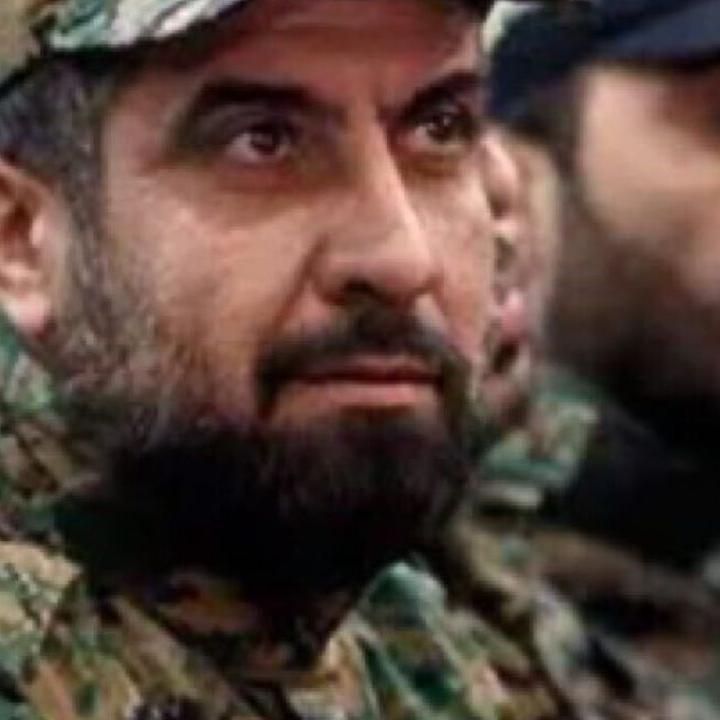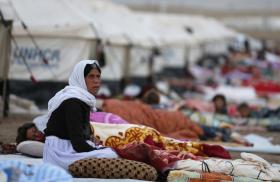

For more than four decades, the late terrorist and military commander Fuad Shukr was at the forefront of the group’s most destabilizing activities, from killing American, European, and Israeli soldiers to procuring advanced weapons from Iran.
In response to the July 27 Hezbollah rocket attack that killed twelve children in Majdal Shams, Israel carried out a precision airstrike at an apartment building in the Haret Hreik neighborhood of Beirut, one of the group’s strongholds. The target of the July 30 operation was Fuad Shukr, a senior commander whom Israeli officials blamed for the Majdal Shams attack and described as the “right-hand man” to Hezbollah leader Hassan Nasrallah. In the immediate term, his death removes one of the group’s most capable military figures, who had the ear of both Nasrallah and the top brass of Iran’s Islamic Revolutionary Guard Corps-Qods Force (IRGC-QF). It also sends a stark message: if Hezbollah kills Israelis, then Israel will no longer be deterred from carrying out sensitive operations deep inside Lebanon, even against the group’s leaders in the capital.
There at the Beginning
Born in 1961 or 1962, Fuad Shukr (aka Hajj Muhsin Chakar) spent his entire adult life moving up Hezbollah’s ranks as a terrorist operative, soldier, and commander. He was a founding member of the Islamic Jihad Organization, the group’s foreign operations element, joining the likes of Imad Mughniyah, Mustafa Badreddine, and Talal Hamiyah.
In that capacity, Shukr played a central role in early terrorist attacks, including against Americans. In October 1983—two years before Hezbollah formally announced its existence in an “open letter” pledging support for Iran’s Supreme Leader and threatening violence against the West—he helped plan and launch suicide truck bombings targeting U.S., French, and Italian peacekeepers, killing 241 personnel at the U.S. Marine barracks in Beirut along with 58 French personnel and 6 civilians (the Italian attack failed).
From Foreign Operations to Southern Lebanon
Over time, Shukr transitioned to increasingly senior military positions, commanding Hezbollah operations against the Israel Defense Forces prior to their withdrawal from southern Lebanon in 2000. According to Israeli officials, he was involved in the October 2000 cross-border attack and killing of three IDF soldiers (Hezbollah returned their remains in 2004 as part of a prisoner exchange). By the time the IDF completed its pullout that December, he was chief of Hezbollah ground forces in the region and was regarded by Israel as one of the group’s most dangerous tactical minds.
Shukr apparently remained in command of Hezbollah forces in the south for years afterward, including when IDF soldiers were abducted from across the border in summer 2006, sparking a war that devastated large parts of Lebanon. In later years, Hezbollah released footage lauding Imad Mughniyah’s role in the abduction—a fair indicator that Shukr was involved as well given their close working relationship. By the time the video was released, Mughniyah had been “martyred” long before by a car bomb blast; now that Shukr is dead, Hezbollah will likely release new footage glorifying his military exploits as well.
Syrian Civil War
As early as 2012, Hezbollah began deploying its best fighters and most senior commanders to help Iran and other Shia militia proxies defend the Assad regime from a mass uprising. In 2015, the U.S. Treasury Department designated Shukr for supporting this deployment, noting that he had “played a vital role in Hezbollah’s military campaign in Syria by aiding Hezbollah fighters and pro-Syrian regime troops against Syrian opposition forces in decisive battles.”
During the war, Shukr was under the command of Mustafa Badreddine, who had been named chief of Hezbollah’s terrorist and military operations after Mughniyah died in 2008. Badreddine himself was killed in 2016, reportedly by Iranian elements who felt he was not heeding the IRGC-QF’s orders closely enough. Afterward, Hezbollah’s military operations became even more subservient to Tehran, with Shukr and other high-ranking commanders (e.g., Ibrahim Aqil, Talal Hamiyah) overseeing things almost by committee—albeit with Shukr emerging as the first among equals. Together, they served as the primary link between former IRGC-QF chief Qasem Soleimani and Hezbollah’s military apparatus. Shukr’s importance in the hierarchy was further underlined in 2017, when the State Department announced a $5 million reward for information on his whereabouts.
PGM Point Man
As Hezbollah wound down its presence in Syria, Shukr took on his next premier assignment: serving as the point man for Hezbollah’s efforts to assemble an arsenal of precision-guided munitions (PGMs). Although most of Hezbollah’s 150,000-plus rockets were not originally designed as precision weapons, Iran has been steadily delivering more sophisticated munitions and guidance kits that give older rockets significantly greater precision. Unlike the indiscriminate targeting results achieved with simpler rockets, PGMs are strategic weapons capable of precisely hitting critical infrastructure, military installations, civilian leadership, and other key targets.
In 2019, Israel identified Shukr as the main Hezbollah commander working with IRGC-QF officials to facilitate Iran’s provision of such weapons (for more on his role, see this entry in The Washington Institute’s interactive map and timeline covering Hezbollah operations worldwide). Six years earlier, Iran had reportedly begun transferring ready-to-use PGMs to Lebanon via Syria. In 2016, it shifted to transferring only missile components, enabling Hezbollah and other groups to convert ordinary rockets to PGMs in Syria and Lebanon.
When the U.S. State Department listed Shukr as a Specially Designated Global Terrorist in 2019, it noted that both he and Aqil sat on Hezbollah’s Jihad Council, the group’s highest military body. By the time of Shukr’s death, Israeli officials held him responsible for overseeing nearly all of Hezbollah’s advanced weaponry programs, including antiship and cruise missiles, long-range rockets, and drones.
Operational Implications
There is no single point of failure within Hezbollah—despite Shukr’s death, it remains a highly capable and dangerous terrorist and military organization. Still, the loss will likely impair it operationally to some degree, especially given that around 400 Hezbollah operatives have been killed by Israeli strikes over the past nine months, including senior regional commanders. That many pinpricks make for a fairly large hole, and Shukr’s death will pull at the resulting rip from the top down.
Matthew Levitt is the Fromer-Wexler Senior Fellow at The Washington Institute, director of its Reinhard Program on Counterterrorism and Intelligence, and creator of the podcast Breaking Hezbollah’s Golden Rule.



